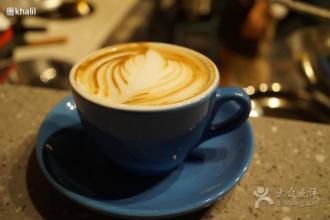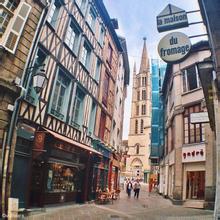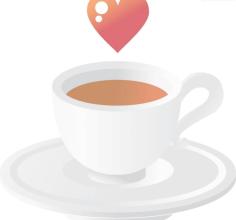Why would Starbucks push a Frappuccino on a cold day?
Starbucks will launch a new bottled product called Strawberry Cheese bottled Frappuccino in China. As a season-limited product, it will be sold during Christmas through e-commerce platforms, high-end supermarkets and convenience stores.
Starbucks says strawberry cheese is tailor-made for Chinese consumers, and this is the first time Starbucks has added the concept of "season limit" to its bottled product line.
Obviously, to make some noise in China's ready-to-drink coffee market, Starbucks needs a new selling point and a conversation to attract attention. and the upcoming Christmas and subsequent festivals such as New Year's Day may be a breakthrough-although winter is not a good season for bottled cappuccino.
This is also Starbucks' most high-profile campaign on the bottled ready-to-drink product line since it partnered with Master Kang. In March 2015, Starbucks announced a partnership with Master Kang to produce Starbucks ready-to-drink coffee products on Chinese mainland. With the help of local production, Starbucks can reduce the price of bottled Frappuccino to make it more competitive. at the same time, Kangshi's supermarket and convenience store channels can also enable Starbucks ready-to-drink products to enter more markets. In September, four ready-to-drink products (original / vanilla / mocha / caramel-flavored Frappuccino) were officially put on the shelves, although they tasted the same as imported products, but Starbucks said they had made fine-tuning "more suitable for Chinese taste". At present, new local bottles of Frappuccino can be seen in Shangchao and some convenience stores, and the prices of these products have been adjusted-from 8 yuan to 10 yuan lower than imported products.
Instant coffee is becoming more and more popular. Not only Starbucks, but more and more beverage companies are also starting to launch or upgrade their own ready-to-drink coffee products. Retail sales of ready-to-drink coffee in China reached $2.645 billion in 2015, nearly 10 times the size of the market in 2010, according to Euromonitor.
Starbucks used to be a pioneer in this market. In November 2007, Starbucks sold bottled Frappuccino in China. In order to promote the new product, Starbucks also sponsored a subway TV series called "Sunshine Diary". However, because the price of imported bottled products is too high, bottled Frappuccino in the Chinese market has not attracted more attention. Consumers' choice is also understandable. Why not go to a coffee shop at a price of about 25 yuan?
For its part, Starbucks, which was in a market launch in 2008, is more focused on opening its own stores in more cities in China than thinking about how to increase its sales of bottled products in retail channels. Starbucks needs to use these stores to build brand awareness, provide experience and promote its coffee culture.
Now, cafes have become the norm, in addition to the brand chain stores, there are a variety of niche boutique coffee, store competition will become more fierce. In addition to continuing to go deep into low-end cities and launch a high-end cafe line, Starbucks is also trying to improve the competitiveness of its stores by introducing tea, food and so on.
Bottled Frappuccinos can give Starbucks products access to other channels outside its stores, such as e-commerce platforms. Although Starbucks' own Tmall flagship store does not offer bottled products, Starbucks dealers have put bottled products on shelves on platforms such as Tmall supermarket and No.1 store.
Today, competition in China's ready-to-drink coffee market is becoming more and more fierce. in addition to Nestl é, which accounts for more than 50% of the market share, Starbucks also has to face other emerging new competitors, including Coca-Cola "Joya", Suntory "interest", Taiwan Brown and so on.

Important Notice :
前街咖啡 FrontStreet Coffee has moved to new addredd:
FrontStreet Coffee Address: 315,Donghua East Road,GuangZhou
Tel:020 38364473
- Prev

Shanghai Free Trade Zone wants to create the largest Coffee Market in Asia
According to the plan, the trading volume of the coffee trading center of the Shanghai Free Trade Zone is expected to exceed 400 billion yuan within three years, surpassing Singapore to become a world-class coffee trading center comparable to New York and London. [during the same period] (Wu Xingbao, deputy director of the Shanghai Municipal Commerce Commission) strengthen the world's major coffee growers, exchange and cooperation, and achieve a strong alliance. Strive for the transaction volume to exceed 100 billion yuan, surpass
- Next

The first financial-themed coffee shop in China launches a cultural and creative project roadshow
The branch venue of the 1980 Cultural Innovation Park in Yangtze River Delta International Cultural Industry Expo Special Economic Zone opened, and the Boao Stock Bar, the first coffee shop in China with finance as its theme, launched a cultural and creative project roadshow here. It is understood that Boao Stock Bar is formed by a network of leading entrepreneurs, entrepreneurs and investors in China's Internet industry. in a relaxed and pleasant environment, you can enjoy supporting services in stocks, IPO private placement, and three.
Related
- Unexpected! Ruixing Telunsu lattes use a smoothie machine to foam milk?!
- % Arabia's first store in Henan opens into the village?! Netizen: Thought it was P's
- Does an authentic standard mocha coffee recipe use chocolate sauce or powder? Mocha Latte/Dirty Coffee/Salty Mocha Coffee Recipe Share!
- What is the difference between Vietnam egg coffee and Norway egg coffee? Hand-brewed single product coffee filter paper filter cloth filter flat solution!
- What is the difference between sun-cured and honey-treated coffee? What are the differences in the flavor characteristics of sun-honey coffee?
- How to make Italian latte! How much milk does a standard latte use/what should the ratio of coffee to milk be?
- How to make butter American/butter latte/butter Dirty coffee? Is hand-brewed coffee good with butter?
- Is Dirty the cold version of Australian White? What is the difference between dirty coffee/decent coffee and Australian white espresso?
- Relationship between brewing time and coffee extraction parameters How to make the brewing time fall to 2 minutes?
- Got entangled?! Lucky opens a new store, Mixue Ice City, and pursues it as a neighbor!

